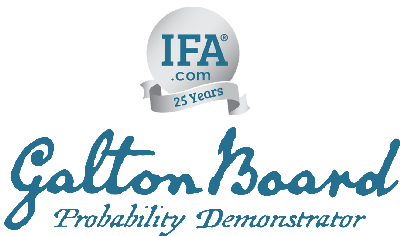Financial advice is a prescription that guides investors to make decisions that best serve their interests. This advice is most effective when the following are carefully taken into consideration.
- An accurate analysis of the cognitive and emotional strengths and weaknesses of investors that relate to making decisions.
- An investor's occasionally faulty assessment of their own interests and desires.
- The relevant facts about investing that are often ignored.
- The limits of the ability to accept advice and to accept the results of the decisions made over time.
In behavioral finance, experts often recommend that investors formulate a checklist of the responsibilities they'd like a financial advisor to oversee as part of a broader wealth management relationship. The idea is an advisor should not just help you to put together an all-weather portfolio that will meet your financial goals, but also serve as a sort of investment coach.
In such a fiduciary role, the wealth manager seeks to educate clients about how best to make sure over time they're not shooting themselves in the foot, so to speak. Classic examples of poor investment behavior include buying when prices on favored funds are high, and conversely, selling when they're low.
But a range of different red flags have been raised through extensive research into the psychology of investing and financial planning. Besides keeping up with the latest advances in portfolio construction and implementation, IFA's clients are also given access to a much larger menu of wealth management services.
This includes support in dealing with estate planning issues, help in meeting a family's educational needs and planning for living in retirement. As a full-service wealth manager, IFA also offers in-house support for business and personal tax consulting — along with tax return preparation services — through our IFA Taxes division.
Of course, these items represent an abbreviated version of our full menu of services. For someone looking to find an appropriate advisor to help manage their financial futures in a holistic and comprehensive fiduciary manner, we've drawn up a list of questions that individual investors and their families should consider when choosing the right wealth management firm to build a relationship with over time.
These points to raise are a summary of best-practices identified by behavioral scientists we've studied in the past. The more of these questions an advisor can answer affirmatively, of course, the better.
- Encourage clients to adopt a broad view of their wealth, prospects and objectives.
- Encourage clients to make long-term commitments to investment policies.
- Encourage clients not to monitor results too frequently.
- Discuss the possibility of future regret concerning the outcome of their investments.
- Ask themselves if a course of action is out of character for their client.
- Verify that the client has a realistic view of the odds, when a normally cautious investor is attracted to a risky investment.
- Encourage the client to adopt different attitudes towards risk for small and for large decisions.
- Attempt to structure the client's portfolio to the shape that the client likes best. This can be accomplished in a well-prepared Risk Capacity™ survey.
- Make clients aware of the uncertainty involved in investment decisions.
- Identify the aversion of clients to the different aspects of risk and incorporate their risk aversions when structuring an investment program.
It is clear from step one that if investors want to discover their most likely deterrent to successful investing, they need only to look in the mirror. Advisors who are aware of the above psychological factors are most likely to provide value to their clients' investing experience.
In looking at the overall wealth management of an investor's estate, at least four other areas of concern are important for every investor. In our experiences working with clients, assembling a team of highly qualified professionals is critical. The team should have expertise in each of these areas:
Estate Planning
After managing their affairs and building their net worth, many IFA clients wonder how to ensure that their families benefit financially from all their efforts? One way is to create a trust.
Or, if you are managing your own trust now do you wonder what happens to your investment assets after you pass away or what happens if you become incapacitated and cannot manage your affairs? If so, you may want to take advantage of the trust services offered by Charles Schwab Bank or Fidelity Personal Trust Company.
These trust services allow IFA to continue managing IFA clients' trust investment assets while Charles Schwab Bank or Fidelity Personal Trust Company execute the administrative fiduciary responsibilities of a corporate trustee, perhaps across generations.
If this is something you want to know more about, ask your estate planning attorney or IFA how you can appoint IFA to continue to act as your investment advisor. (Another source of information is the National Association of Estate Planners and Councils.)
IFA also likes to recommend that you interview at least three estate planning attorneys in your area and select one that you feel comfortable with. Have the attorney prepare or review your trusts and wills. Be sure to evaluate the role of charitable giving and wealth transfer to children, families and/or charities.
An IFA wealth advisor can assist you in evaluating attorneys. We receive no reimbursement or payments from any referrals or work we do in conjunction with outside law firms or lawyers.
Insurance Planning
Find an independent insurance consultant who is not paid by an insurance company to sell you their insurance products. A fee-only insurance advisor can usually assist you in selecting insurance products without the traditional conflict of interests that may exist with insurance brokers for specific insurance products.
Fee-only insurance professionals charge their clients based on fiduciary services rendered, which stands in stark contrast to those who are paid based on products sold. Here are some fee-only insurance providers we've referred clients to in the past (with a sampling of some of their service offerings):
- Witt Actuarial Services. Scott Witt works with clients on life insurance, long-term care insurance and annuities. Also provides litigation support including damage calculations and other actuarial types of analytical services for insurance-related cases.
Accounting and Tax Advice
Accountants who are proactive in tax planning strategies will be able to make sure you aren't paying more taxes than you should. If you're in-need of accounting-related services, we offer in-house expertise through IFA Taxes. This division of Index Fund Advisors works with both existing wealth management clients and outside taxpayers nationally to provide tax advice and planning, accounting and bookkeeping services as well as tax return preparation work.
Based on past IRS rulings and IFA's experiences working with clients, we recommend two key points to be mindful of when building a sound working relationship with an appropriate tax preparation professional:
- You are legally responsible for what's on your tax returns even if they are prepared by someone else. So, it's important to find a qualified tax professional.
- The most reputable preparers will request to see your records and receipts and will ask you multiple questions to determine your total income and your qualifications for expenses, deductions and other items. By doing so, they have your best interest in mind and are trying to help you avoid penalties, interest, or additional taxes that could result from later IRS contacts.
Whether using IFA Taxes or others, listed below is a checklist to help ensure you receive a high level of professional and ethical service in tax preparation, tax planning and accounting-related services:
- Find out what the service fees are before the return is prepared. Avoid preparers who base their fee on a percentage of the amount of your refund or who claim they can obtain larger refunds than other preparers.
- Only use a tax professional that signs your tax return and provides you with a copy for your records.
- Avoid tax preparers that ask you to sign a blank tax form.
- Choose a tax preparer that will be around to answer questions after the return has been filed.
- Ask questions. Do you know anyone who has used the tax professional? Were they satisfied with the service they received?
- Check to see if the preparer has any questionable history with the Better Business Bureau, the state's board of accountancy for CPAs or the state's bar association for attorneys. Find out if the preparer belongs to a professional organization that requires its members to pursue continuing education and holds him or her accountable to a code of ethics.
- Determine if the preparer's credentials meet your needs. Does your state have licensing or registration requirements for paid preparers? Is he or she an Enrolled Agent, Certified Public Accountant, or Attorney? If so, the preparer can represent taxpayers before the IRS on all matters – including audits, collections, and appeals. Other return preparers can represent taxpayers only in audits regarding a return signed as a preparer.
- Before you sign your tax return, review it and ask questions.
You can report suspected tax fraud and abusive tax preparers by sending a letter to Internal Revenue Service, Fresno, CA 93888, or call 800-829-3676.
Investment Advisors
In IFA's opinion, three critical characteristics of investment advisors are:
- Independence from all financial products and custodians.
- The application of a passive investment strategy.
- A fair price for their advice.
At IFA, our wealth management services are set up to meet such ethical and professional standards. As a result, our advisors are required by IFA's management to work with clients in ways that incorporate all three of these sets of criteria.
Life Planning
Life planning is the art — or human side — of financial planning. In life planning, you discover important goals through a process of questions. Then, using a mix of professional and relationship skills, an advisor resolves the obstacles to those goals, creates a plan and guides you to the accomplishment of these goals in a fast and efficient manner.
At its core, life planning encourages investors to be sure they have asked and answered the fundamental question of: "What's it for – all this money that I've given so much to acquire?" Author Stephen Covey encourages "beginning with the end in mind" in his work around "The 7 Habits of Highly Effective People." With a better idea of your end-destination in mind, future financial planning decisions including portfolio risk exposure become both more relevant and holistic.
A pioneer in the field of life planning, George Kinder, suggested in his writings that investors carefully answer three important questions. Each is designed to provide fodder for an in-depth conversation with a wealth manager to better guide clients in meeting their life goals that apply to areas such as family, creativity, spirit and service. Here they are:
- Assume you've got all the money you need. What would you do with it and how would you live?
- You just found out you have only five to 10 years to live. How will you live those years?
- You've just found out you have 24-hours to live. What did you miss? Who did you not get to be? What did you not get to do?
Charitable Giving
Another area where an advisor can add value is charitable giving. Specifically, the advisor can identify securities in taxable accounts that have high long-term capital gains and are also sensible candidates for trimming back to keep the portfolio in balance, thereby potentially producing a double benefit for clients.
Furthermore, a knowledgeable advisor can help the client establish a donor-advised fund, which is a charitable investment account that is held at a custodian such as Charles Schwab, Fidelity or TDAmeritrade. The client determines when and to which charity a donation is to be made from the account. In addition to providing growth potential for charitable assets, a donor-advised fund allows the client to have greater control over the timing of tax deductions while providing an opportunity to educate the client's family about investing and philanthropy.
Donors often withhold giving because they are concerned the organization is not using the funds in a way they would think is appropriate. Is the CEO being paid more than you think is reasonable? Are the administrative costs too high as a percentage of donations? How do the charity's expenses compare to others? These and other important issues can be researched at several different educational websites, including charitynavigator.org. As with any outside resource, of course we urge you to make sure to do your own review of this site and others before giving. Please feel free to reach out to your IFA wealth advisor for further discussion.
This is intended to be informational in nature and should not be construed as tax advice. As a division of Index Fund Advisors, Inc., IFA Taxes provides a wide array of tax planning, accounting and tax return preparation services for individuals and businesses across the United States. IFA Taxes does not provide auditing or attestation services and therefore is not a licensed CPA firm. IRS Circular 230 Disclosure: To ensure compliance with requirements imposed by the IRS, we inform you that any U.S. Federal tax advice contained in this communication is not intended or written to be used, and cannot be used, for the purpose of (i) avoiding penalties under the Internal Revenue Code or (ii) promoting, marketing or recommending to another party any transaction or matter herein. For more information about Index Fund Advisors, Inc, please review our brochure at https://www.adviserinfo.sec.gov/ or visit www.ifa.com.
Certified Public Accountant (CPA) is a license to provide accounting services to the public awarded by states upon passing their respective course work requirements and the Uniform Certified Public Accounting Examination.














